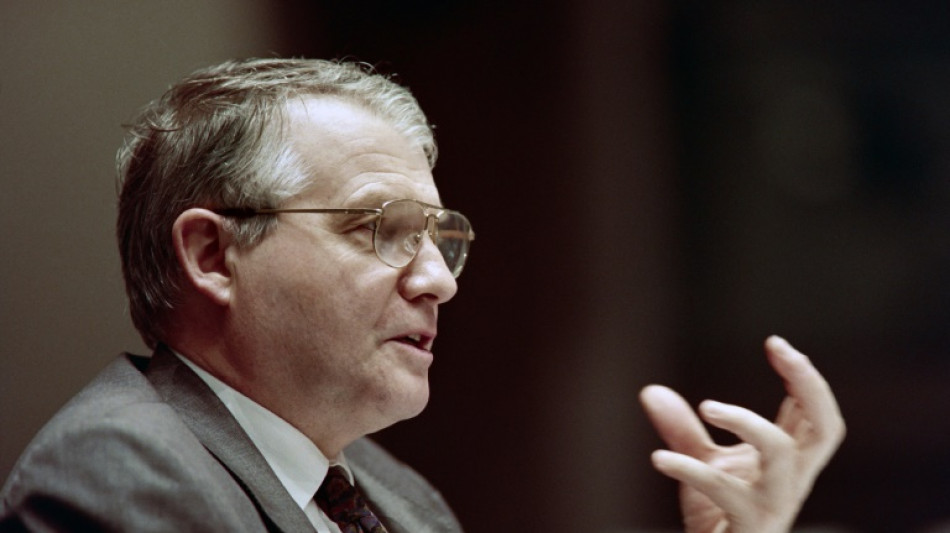
-
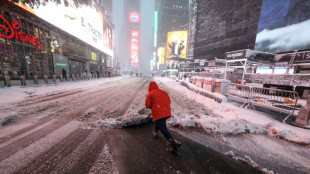 Snowstorm blankets US northeast as New York sees travel ban
Snowstorm blankets US northeast as New York sees travel ban
-
Healthcare crisis looms over Greenland's isolated villages
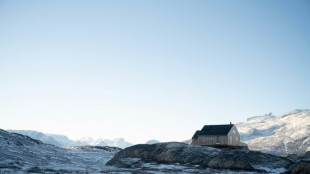
-
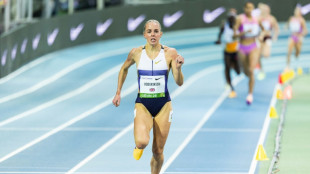 Hodgkinson says breaking 800m record would put her among athletics' greatest
Hodgkinson says breaking 800m record would put her among athletics' greatest
-
Two Russian security personnel were on board France-seized tanker: sources

-
 EU puts US trade deal on ice after Supreme Court ruling
EU puts US trade deal on ice after Supreme Court ruling
-
Hetmyer blasts 85 as West Indies pile up 254-6 against Zimbabwe

-
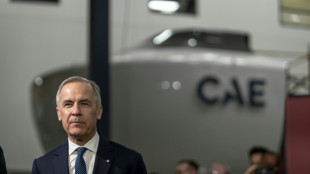 Canada PM heads to Asia seeking new trade partners as US ties fray
Canada PM heads to Asia seeking new trade partners as US ties fray
-
South Africa accepts Trump's new US ambassador
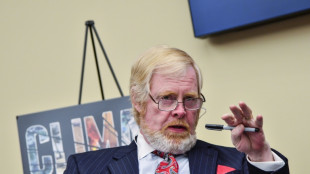
-
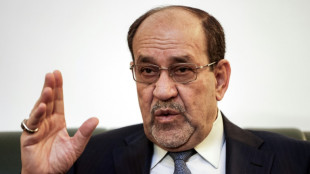 Iraq's Maliki defends PM candidacy, seeks to reassure US
Iraq's Maliki defends PM candidacy, seeks to reassure US
-
UEFA suspend Benfica's Prestianni after alleged racist abuse

-
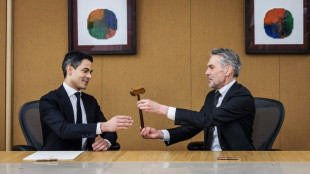 Jetten sworn in as youngest-ever Dutch PM
Jetten sworn in as youngest-ever Dutch PM
-
Italy's Enel to invest 20bn euros in renewables by 2028
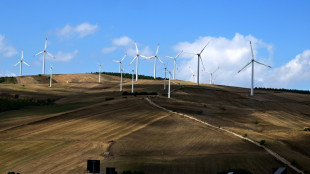
-
 BBC apologises for 'involuntary' Tourette's racial slur during BAFTA awards
BBC apologises for 'involuntary' Tourette's racial slur during BAFTA awards
-
Kristen Bell returns to host glitzy Actor Awards in Hollywood
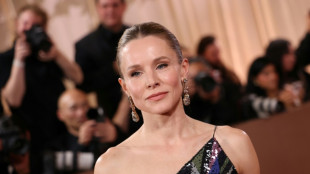
-
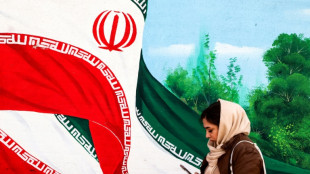 Iran says would respond 'ferociously' to any US attack
Iran says would respond 'ferociously' to any US attack
-
Venezuelan foreign minister demands 'immediate release' of Maduro
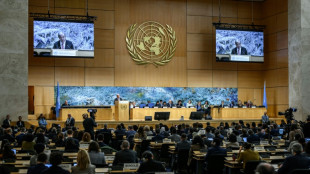
-
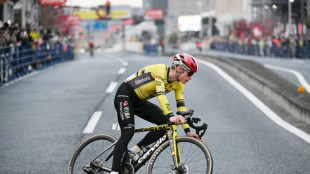 Dane Vingegaard to start season at Paris-Nice in March
Dane Vingegaard to start season at Paris-Nice in March
-
Australia PM backs removing UK's Andrew from line of succession
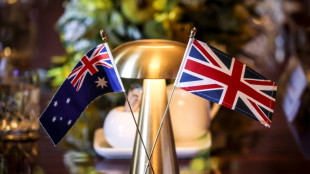
-
 Where do Ukraine and Russia stand after four years of war?
Where do Ukraine and Russia stand after four years of war?
-
Police investigating racist abuse of Premier League quartet

-
 Fiji to start Nations Championship at 'home' to Wales in Cardiff
Fiji to start Nations Championship at 'home' to Wales in Cardiff
-
EU lawmakers to put US trade deal on hold after Supreme Court ruling

-
 Rubio to attend Caribbean summit as US presses Venezuela, Cuba
Rubio to attend Caribbean summit as US presses Venezuela, Cuba
-
'Ugly' England aim to spin their way to T20 World Cup semi-finals

-
 Nigeria paid Boko Haram ransom for kidnapped pupils: intel sources
Nigeria paid Boko Haram ransom for kidnapped pupils: intel sources
-
Tudor says Tottenham can still beat the drop despite Arsenal loss

-
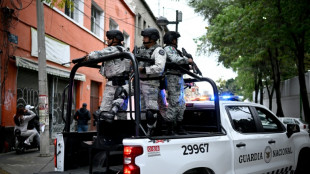 Violence sweeps Mexico after most-wanted drug cartel leader killed
Violence sweeps Mexico after most-wanted drug cartel leader killed
-
France giant Meafou capable of being 'world's best' lock

-
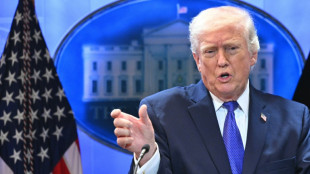 Stocks diverge, dollar down over Trump tariffs uncertainty
Stocks diverge, dollar down over Trump tariffs uncertainty
-
World champions South Africa announce eight home Tests for 2026/27

-
 Liverpool boss Slot encouraged by Mac Allister's return to form
Liverpool boss Slot encouraged by Mac Allister's return to form
-
India replaces British architect statue with independence hero
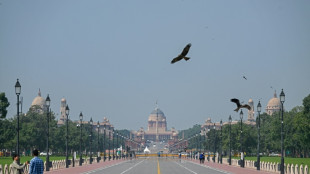
-
 Pakistan warn England's flaky batting to expect a trial by spin
Pakistan warn England's flaky batting to expect a trial by spin
-
Philippines' Duterte authorised murders, ICC told as hearings open
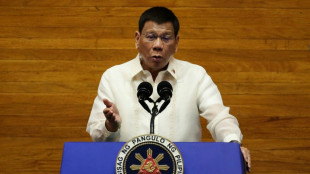
-
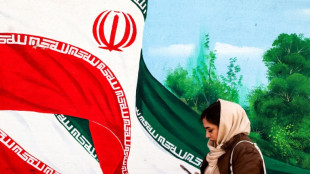 Iran says would respond 'ferociously' to any US attack, even limited strikes
Iran says would respond 'ferociously' to any US attack, even limited strikes
-
New Dutch government sworn in under centrist Jetten
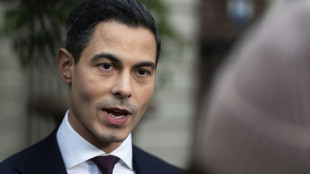
-
 What the future holds for the CJNG cartel after leader killed
What the future holds for the CJNG cartel after leader killed
-
ICC kicks off pre-trial hearing over Philippines' Duterte
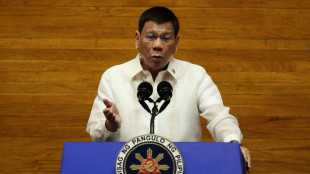
-
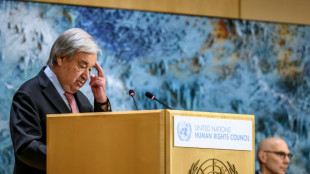 UN chief decries global rise of 'rule of force'
UN chief decries global rise of 'rule of force'
-
Nemesio Oseguera, the brutal Mexican drug lord known as 'El Mencho'
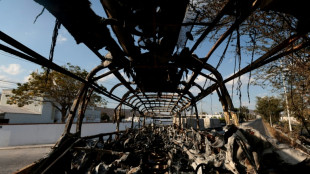
-
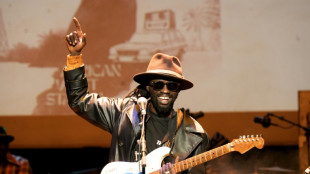 Senegal's Sahad, radiant champion of 'musical pan-Africanism'
Senegal's Sahad, radiant champion of 'musical pan-Africanism'
-
New York orders citywide travel ban as major storm hits US
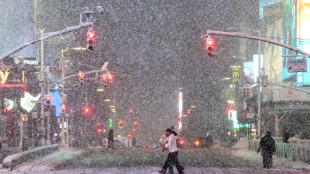
-
 'Considered a traitor': Life of an anti-war Ukrainian in Russia
'Considered a traitor': Life of an anti-war Ukrainian in Russia
-
South Korea and Brazil sign deals on K-beauty, trade
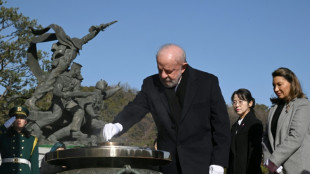
-
 Zimbabwe farmers seek US help over long-promised payouts
Zimbabwe farmers seek US help over long-promised payouts
-
Hong Kong appeals court upholds jailing of 12 democracy campaigners
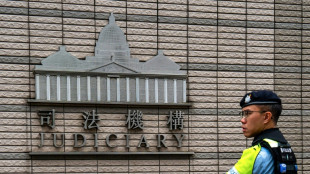
-
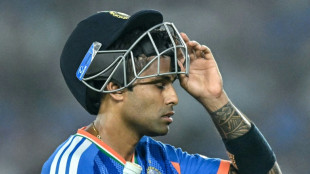 India battle for World Cup survival after 'messing up on grand scale'
India battle for World Cup survival after 'messing up on grand scale'
-
'I will go': Bengalis in Pakistan hope for family reunions
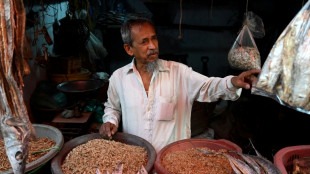
-
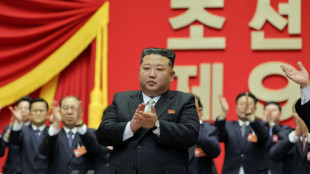 North Korea touts nuclear advances as Kim re-chosen to lead ruling party
North Korea touts nuclear advances as Kim re-chosen to lead ruling party
-
South Korea protests 'Victory' banner hung from Russian embassy
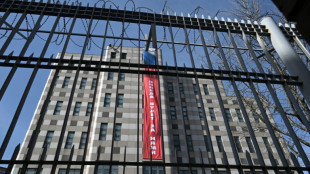

Luc Montagnier: HIV discoverer who ended a pariah
French researcher Luc Montagnier, who has died at 89, shared the Nobel medicine prize for his vital early discoveries on AIDS, but was later dismissed by the scientific community for his increasingly outlandish theories, notably on Covid-19.
Montagnier and Francoise Barre-Sinoussi shared the Nobel in 2008 for their work at the Pasteur Institute in Paris in isolating the human immunodeficiency virus (HIV).
Their achievement sped the way to HIV tests and antiretroviral drugs that keep the deadly pathogen at bay.
- Bitter rivalry -
AIDS -- acquired immune deficiency syndrome -- first came to public notice in 1981, when US doctors noted an unusual cluster of deaths among young gay men in California and New York.
Montagnier had a bitter rivalry with US scientist Robert Gallo in his ground-breaking work in identifying HIV at the virology department he created in Paris in 1972.
Both are co-credited with discovering that HIV causes AIDS, and their rival claims led for several years to a legal and even diplomatic dispute between France and the United States.
Montagnier's work started in January 1983, when tissue samples arrived at the Pasteur Institute from a patient with a disease that mysteriously wrecked the immune system.
He later recalled the "sense of isolation" as the team battled to make this vital connection.
"The results we had were very good but they were not accepted by the rest of the scientific community for at least another year, until Robert Gallo confirmed our results in the US," he said.
The Nobel jury made no mention of Gallo in its citation.
In 1986 Montagnier shared the Lasker Award -- the US equivalent of the Nobel -- with Gallo and Myron Essex.
In 2011, to mark 30 years since the appearance of AIDS, Montagnier warned of the spiralling costs of treating the 33 million then stricken with HIV.
"Treatment cuts transmission, that's clear, but it doesn't eradicate it, and we can't treat all the millions of people," he told AFP.
- Controversial ideas -
Montagnier was born on August 8, 1932 at Chabris in the Indre region of central France.
After heading Pasteur's AIDS department from 1991 to 1997, and then teaching at Queens College in New York, Montagnier gradually drifted to the scientific fringes, stirring controversy after controversy.
He repeatedly suggested that autism is caused by infection and set up much-criticised experiments to prove it, claiming antibiotics could cure the condition.
He stunned many of his peers when he talked of the purported ability of water to retain a memory of substances.
And he believed that anyone with a good immune system could fight off HIV with the right diet.
Montagnier supported theories that DNA left an electromagnetic trace in water that could be used to diagnose AIDS and Lyme's Disease, and championed the therapeutic qualities of fermented papaya for Parkinson's Disease.
- 'Slow scientific shipwreck' -
He repeatedly took up positions against vaccines, earning a stinging reprimand in 2017 from 106 members of the Academies of Sciences and Medicines.
The French daily Le Figaro described his journey from leading researcher to crank as a "slow scientific shipwreck".
During the Covid pandemic he stood out again, stating that the SARS-CoV-2 virus was laboratory-made and that vaccines were responsible for the appearance of variants.
These theories, rejected by virologists and epidemiologists, made him even more into a pariah among his peers, but a hero to French anti-vaxxers.
L.Hussein--SF-PST



